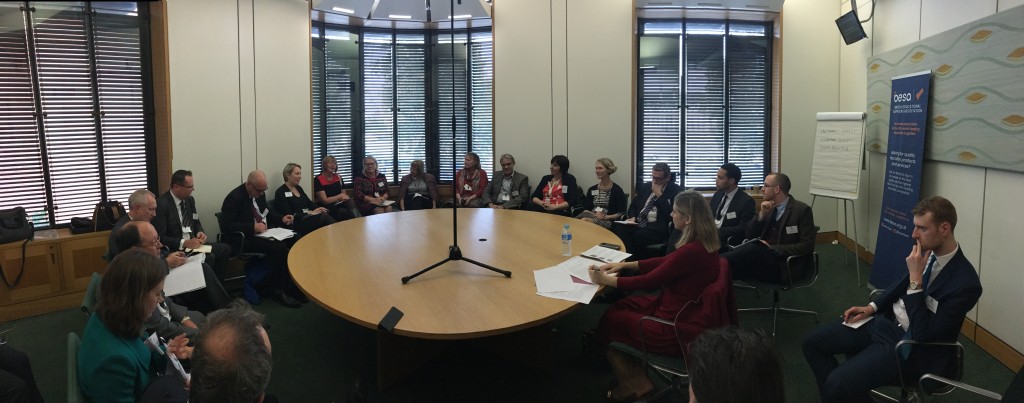On the 19th October, the APPG for Education hosted the second in a series of roundtable events as part of its inquiry in to how well British schools are preparing young people for their future careers. The roundtable focused on the availability, quality and effectiveness of current careers advice and guidance students receive from their schools. The debate was chaired by Andrea Jenkyns MP and followed an event on 13th October which examined where the focus should lie in schools between teaching academic subject knowledge and soft skills. The guests ranged from leaders in industry, to teachers and principals, Ofsted and career guidance counsellors.
The debate began with a focus on how businesses can align with schools to ensure that pupils are presented with the widest and highest quality selection of work experience placements. An initial assertion was that more should be done to create relationships between schools and businesses. It was suggested that many companies and schools can form a relationship and then see it disappear due to something as simple as a change of staff in either side. Some even commented that for businesses to gain access to schools the levels of bureaucracy must be eased; too many do not want to jump through hoops when they are already doing something to help. Others recommended that schools could offer businesses something in return, such as certificates or even have the students aid businesses in simple tasks year round.
Many answered with the fact that schools need specialists to play their part but they simply cannot afford full-time careers counsellors and the role is often fulfilled by a librarian or even kitchen staff. Schools no longer have to offer careers guidance and so many have prioritised other areas – it was suggested that compulsory work experience should return but some queried how this would be funded. Another issue was that of geography; for schools in London finding a partner business is much easier than those in less metropolitan areas.
The debate then moved on to the effectiveness of career guidance in its current form. It was suggested that the introduction of careers guidance in regular lessons has been to the detriment of the pupils and careers guidance in general, but this was met with strong rebuke by other participants who argued that having separate careers guidance left students confused as to how to apply it to what they were learning. Many suggested testing and quantifying the success of work experience placements, to determine how well young people benefited from different experiences.
The debate concluded with a series of concrete recommendations from the guests, which will now form part of the final report of the inquiry. The third, and final, roundtable will be held on 22nd November and will examine Science, Technology, Engineering and Maths (STEM) education and how well our education system is equipping young people for careers in these key fields.

